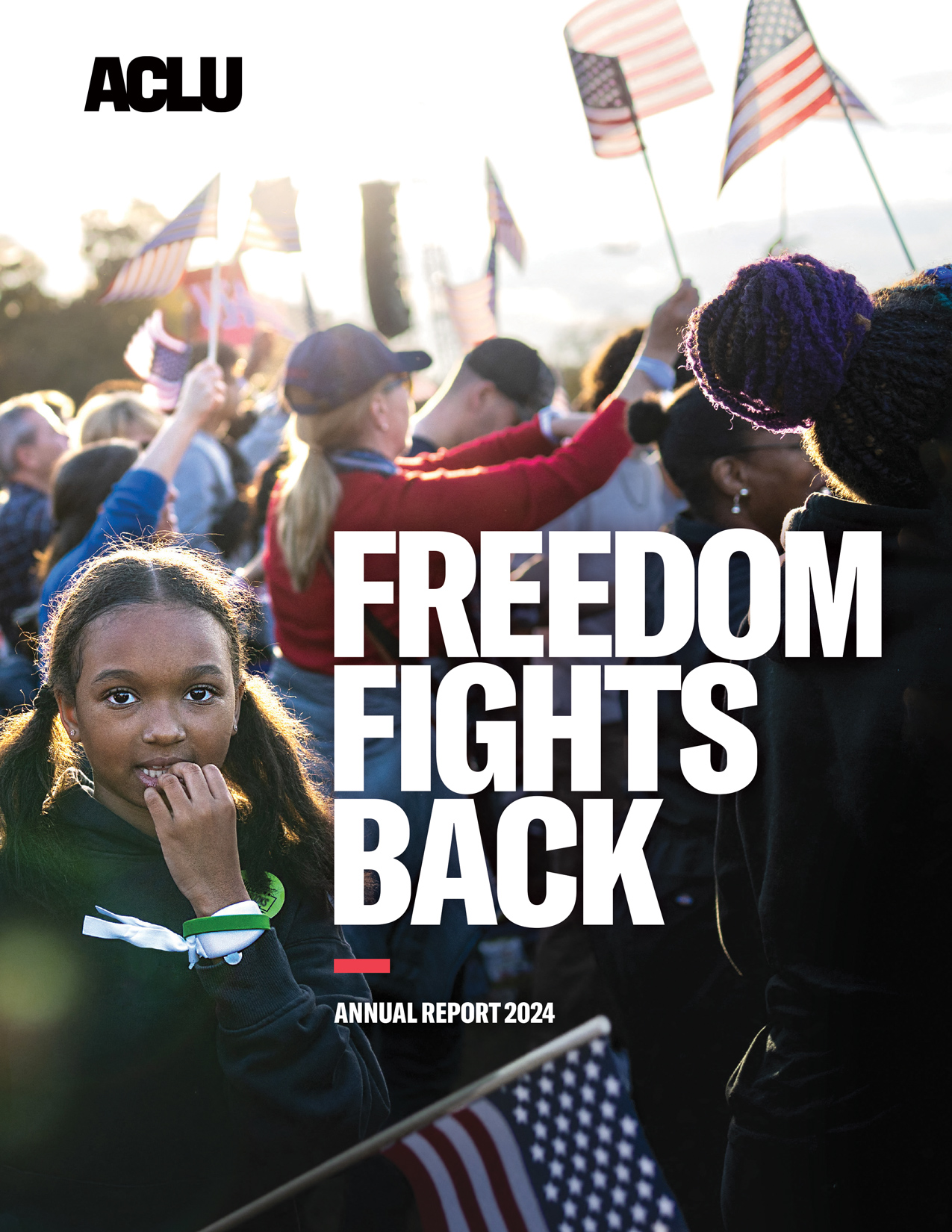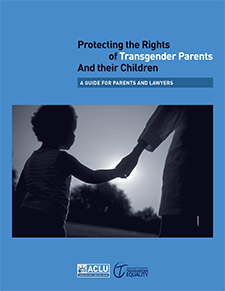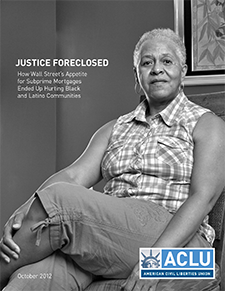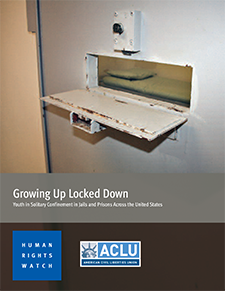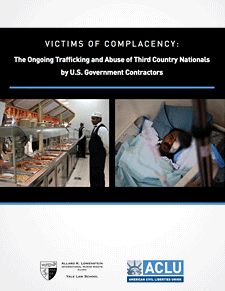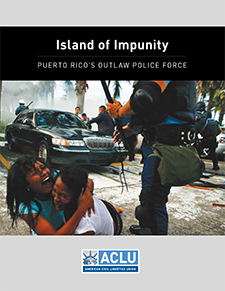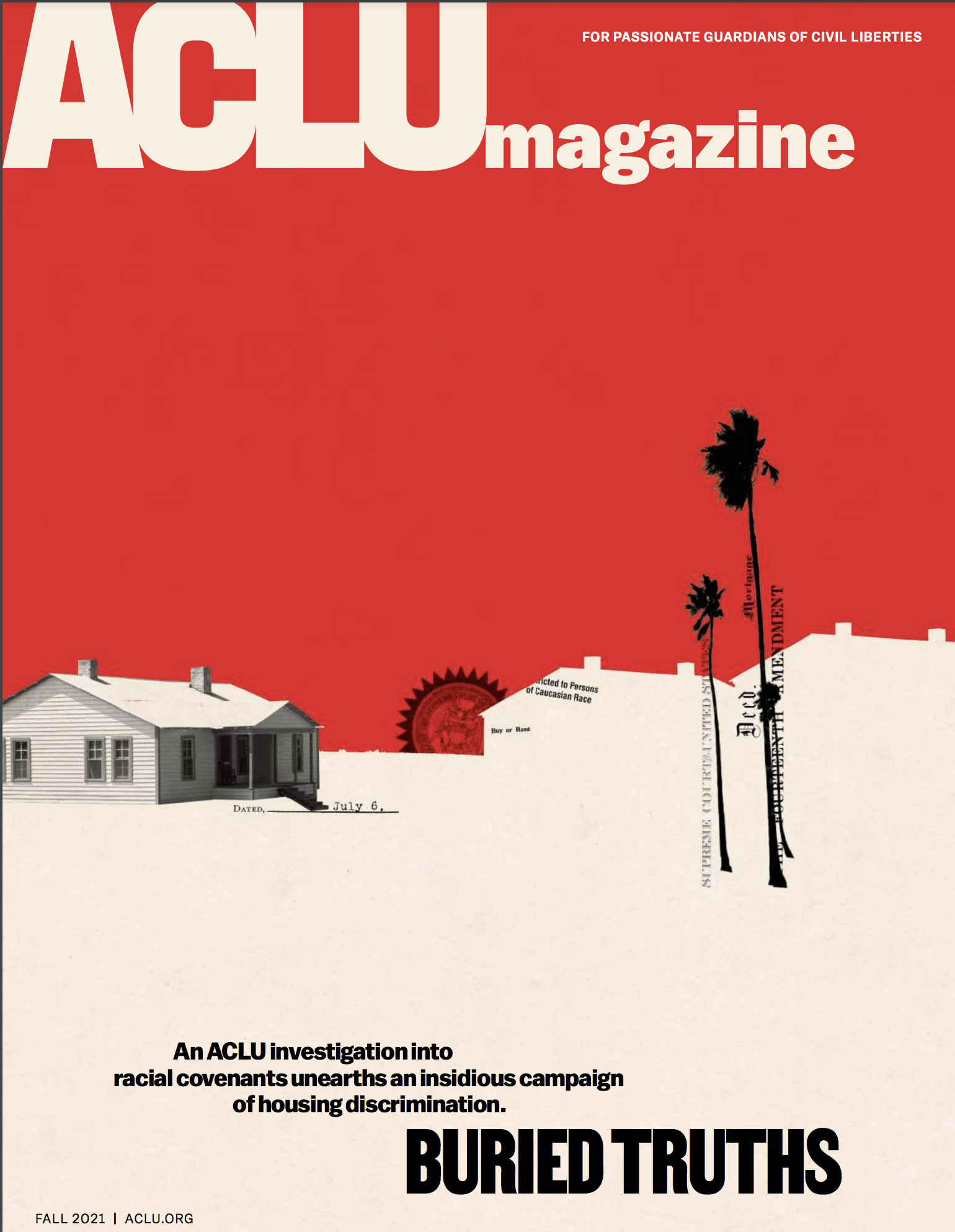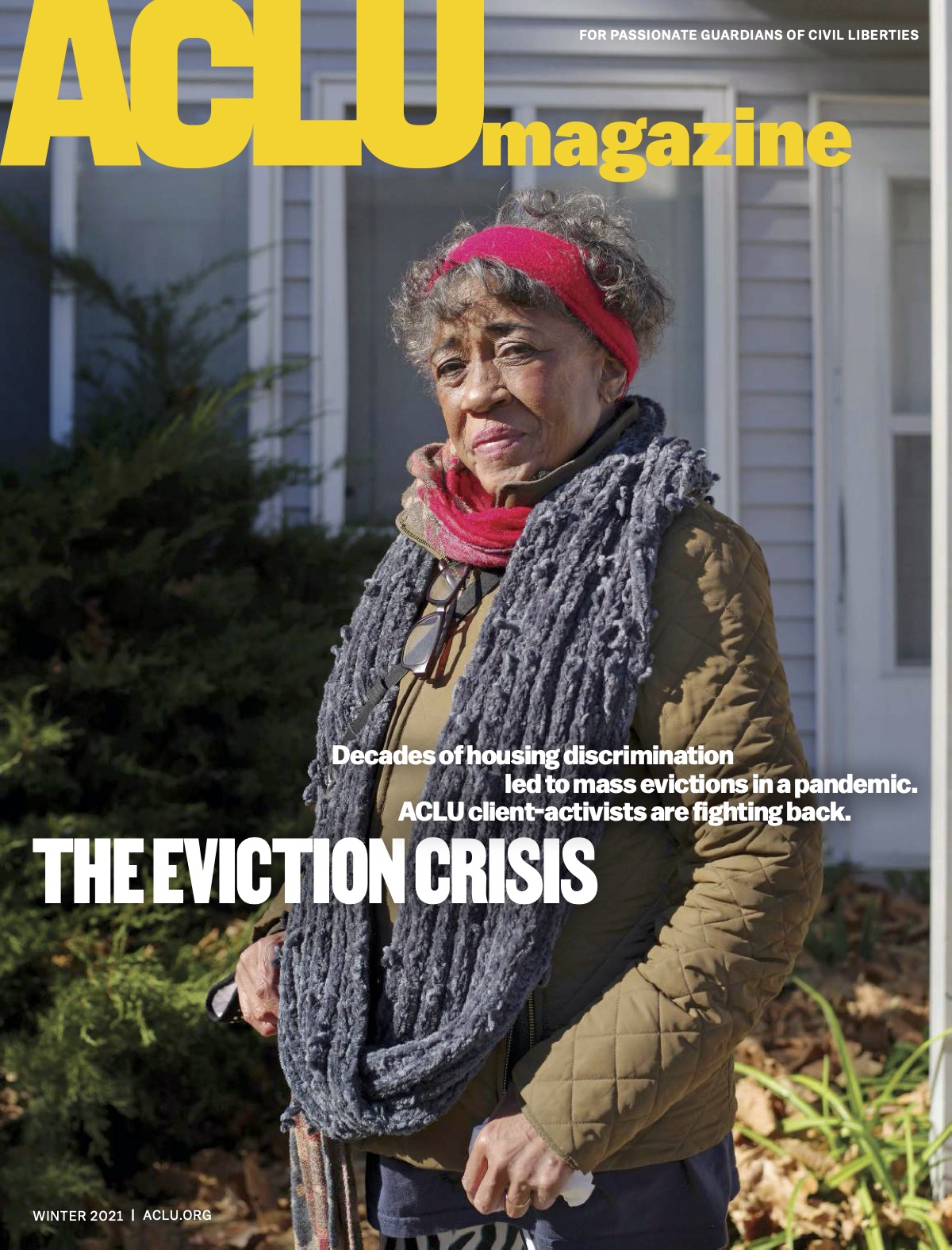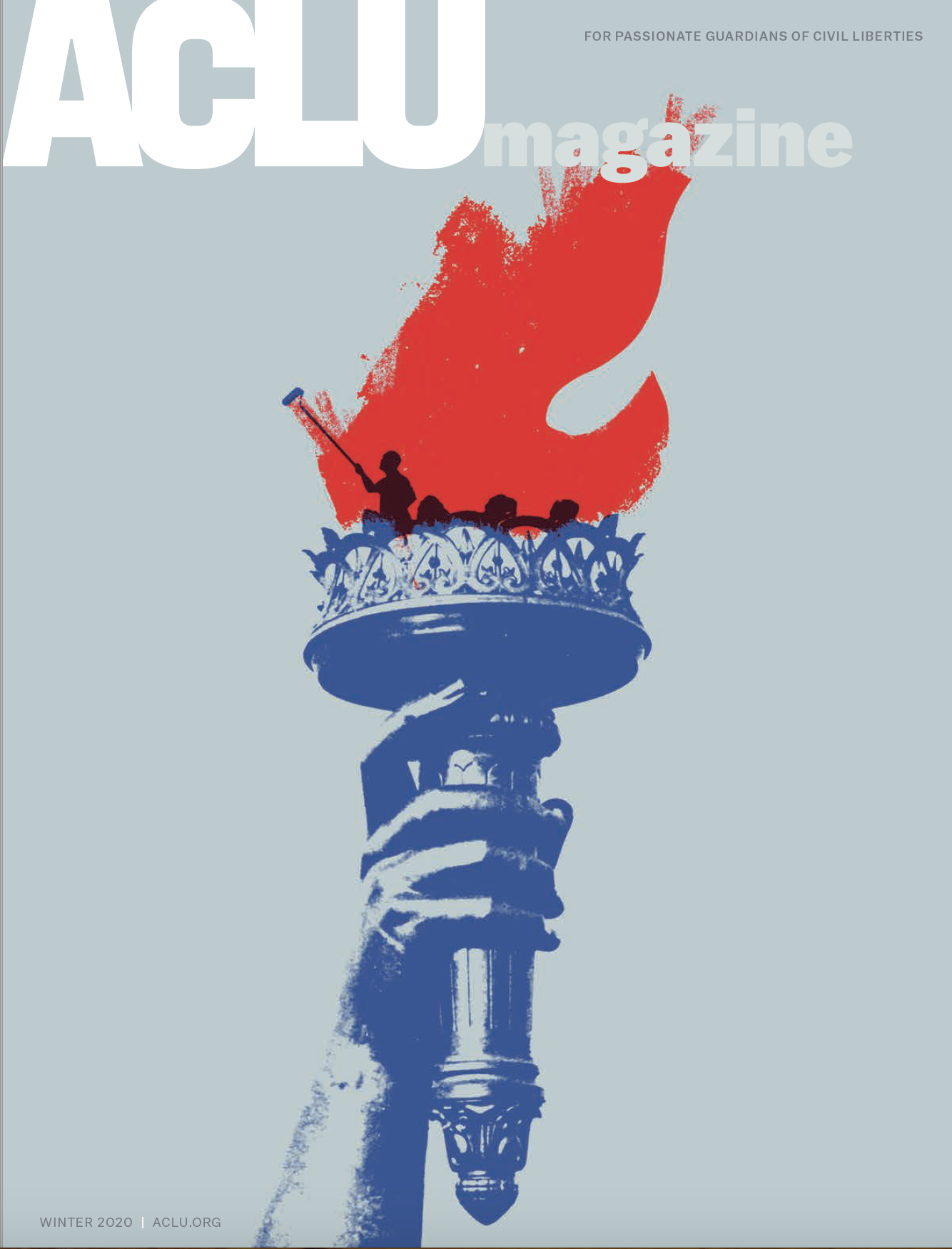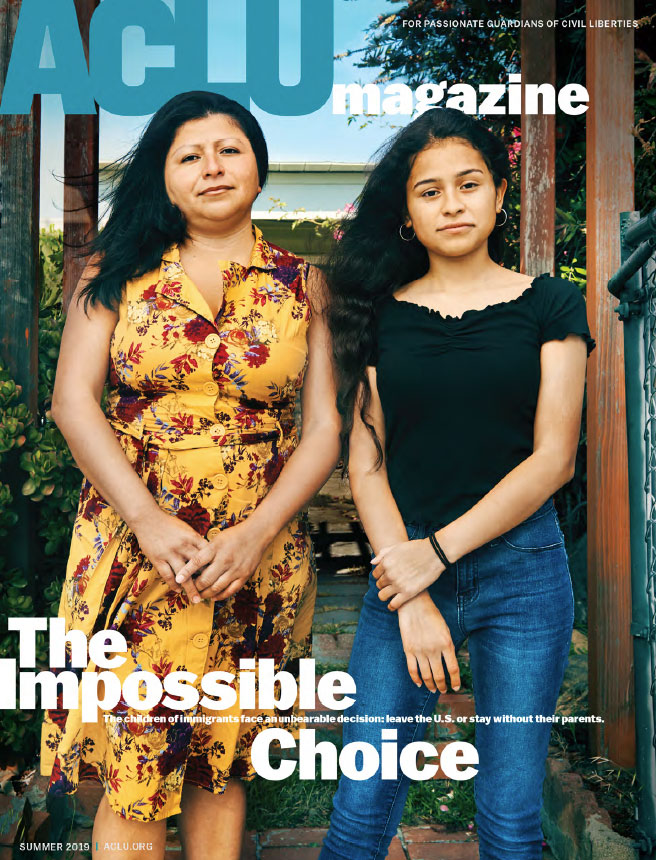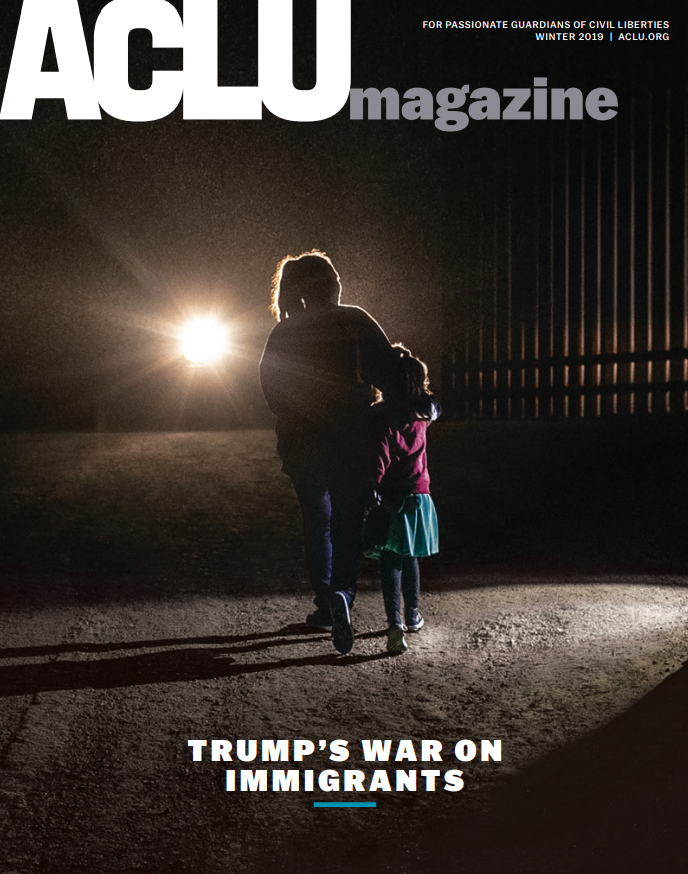Research & Publications
Access in-depth resources and analysis published by the ACLU regarding our most pressing civil liberties issues.
ACLU 2024 Annual Report
The ACLU’s 2024 annual report highlights how the organization worked around the clock this year to safeguard voting rights ahead of the November elections, protect bodily autonomy, defend free speech, and much more. Alongside breakdowns of the ACLU’s key wins and efforts throughout 2024, the report tells the stories of ACLU activists, advocates, and clients who are on the front lines of this fight.
All Publications
Search will open in a new tab using DuckDuckGo
Protecting the Rights of Transgender Parents and their Children
A Joint Publication of the American Civil Liberties Union and the National Center for Transgender Equality
All too often parents who have transitioned or come out as transgender after having children have seen their gender transition raised by their ex-spouse or partner as a basis to deny or restrict custody or visitation. Transgender people who formed families after transitioning have faced challenges to their legal status as parents, often based on attacks on the validity of their marriages. This guide provides information to transgender parents and their attorneys to help them protect parent-child relationships and assist them when faced with disputes over child custody issues.
If you would like to order hard copies of the publication, please contact the ACLU LGBT & HIV Project at (212) 549-2627.
Additional Resources
Justice Foreclosed: How Wall Street's Appetite for Subprime Mortgages Ended Up Hurting Black and Latino Communities
The economic crisis of 2008, which was devastating for the nation’s economy as a whole, was nothing short of disastrous for communities of color. The decades of progress toward full inclusion in the American dream that the civil rights laws of the 1960s enabled disappeared virtually overnight, stripping communities of color of their homes and their financial futures.
In this report, Justice Foreclosed, we look at how Wall Street’s demand for loans encouraged predatory lending in communities of color; how that in turn fueled the housing crisis, and how the bust will continue to affect these communities for years, if not generations, to come.
Growing Up Locked Down: Youth in Solitary Confinement in Jails and Prisons Across the United States
Every day, in jails and prisons across the United States, young people under the age of 18 are held in solitary confinement. They spend 22 or more hours each day alone, usually in a small cell behind a solid steel door, completely isolated both physically and socially, often for days, weeks, or even months on end. Sometimes there is a window allowing natural light to enter or a view of the world outside cell walls. Sometimes it is possible to communicate by yelling to other inmates, with voices distorted, reverberating against concrete and metal. Occasionally, they get a book or bible, and if they are lucky, study materials. But inside this cramped space, few contours distinguish one hour, one day, week, or one month, from the next.
A new report from the ACLU and Human Rights Watch, “Growing Up Locked Down: Youth in Solitary Confinement in Jails and Prisons Across the United States,” is based on interviews and correspondence with more than 125 young people in 19 states who spent time in solitary confinement while under age 18 as well as with jail and/or prison officials in 10 states.
Victims of Complacency: The Ongoing Trafficking and Abuse of Third Country Nationals by U.S. Government Contractors
A report released by the ACLU and Allard K. Lowenstein International Human Rights Law Clinic at Yale Law School in June 2012 examines the ongoing trafficking and abuse of Third Country Nationals (“TCNs”), tens of thousands of whom are hired yearly through U.S. Government contracts to work in support of U.S. military and diplomatic missions in Iraq and Afghanistan. This large and diverse civilian workforce, or “army behind the army,” hails primarily from developing countries such as Nepal, India, the Philippines, and Uganda, and performs low-wage but essential services, including construction, security, and food services.
Learn More: Military Contract Human Trafficking Documents Released Under FOIA
Although the U.S. Government has adopted a “zero-tolerance” policy against trafficking, TCNs are often subjected to illegal recruitment through deceptive hiring practices, trafficking, forced labor and other labor abuses in violation of U.S. and international anti-trafficking laws. Moreover, the U.S. Government response to this contractor malfeasance hasto-date been wholly inadequate.
In light of these ongoing abuses, this report aims to:
- Shed light on the system by which U.S. Government contractors continue to traffic and abuse TCNs, as well as explain in detail how this system operates, whom it benefits, and how it affects TCNs;
- Explain how this system violates U.S. and international prohibitions against human trafficking and labor abuse;
- Demonstrate that U.S. Government measures to address these problems are failing to prevent contractors from engaging in trafficking and labor abuse; and
- Recommend concrete steps the U.S. Government should take in order to eliminate trafficking and abuse from the U.S. contracting industry.
The report offers a number of detailed recommendations for the elimination of trafficking and labor abuses from the U.S. contracting industry including:
- Preventing trafficking and labor abuses by encouraging direct hire of TCNs and ensuring all U.S. Government contracts explicitly affirm the U.S. Government’s “zero tolerance” policy against trafficking,as well as guarantee passport access, fair pay and time off, safe and hospitable living conditions, medical care and insurance, regular contact with home and family, and the right of return;
- Improving oversight and monitoring of contractors’ compliance with the prohibitions against trafficking and forced labor by conducting regular audits and inspections, implementingformal mechanisms to receive and process reports of trafficking and labor abuse, and investigating reports of abuses; and
- Improving enforcement and accountability for trafficking- and labor-rights violations by expanding federal criminal jurisdiction to include all government contractors, prosecuting U.S. contractors who engage in violations of TCN rights under federal criminal law, and imposing stringent penalties on every contractor who engages in or fails to report such abuses.
On July 21, 2011, on behalf of the Iraqi Refugee Assistance Project, the ACLU filed a legal complaint to compel the production of government documents relating to the trafficking, forced labor and abusive treatment of Third Country Nationals on U.S. military bases in Iraq and Afghanistan.
Island of Impunity: Puerto Rico's Outlaw Police Force
A report released by the ACLU in June 2012 concludes that the Puerto Rico Police Department is plagued by a culture of unrestrained abuse and impunity. The PRPD – which, with over 17,000 officers, is the second-largest police department in the U.S – is charged with policing the Commonwealth of Puerto Rico.
In July 2013, the U.S. Justice Department entered into a legally binding consent decree with the Puerto Rican government that requires sweeping reforms to end the widespread police brutality on the island. Learn more about the historic agreement here.
After a comprehensive six-month investigation of policing practices in Puerto Rico, building on eight years of work by the ACLU of Puerto Rico documenting cases of police brutality, the ACLU concluded that the PRPD commits serious and rampant abuses in violation Puerto Ricans' constitutional and human rights, including:
- Use of excessive and lethal force against civilians, especially in poor and Black neighborhoods and Dominican communities, often resulting in serious injury and death. Read More.
- Violent suppression of peaceful protestors using batons, rubber bullets, and a toxic form of tear gas that was phased out by mainland U.S. police departments in the 1960's. Read More.
- Failure to protect victims of domestic violence and to investigate reported crimes of domestic violence, rape, and other gender-based crimes. Read More.
The ACLU's research shows that these abuses do not represent isolated incidents or aberrant behavior by a few rogue officers, but that such police brutality is pervasive and systemic, island-wide and ongoing. In fact, our research has found that the PRPD's disciplinary, investigatory, and reporting systems prevent accountability. Read more.
The report offers numerous detailed recommendations, including:
- The Justice Department should enter into a court-enforceable and court-monitored agreement with the PRPD.
- The PRPD should develop and implement policies on the use of force, improved training, the investigation of civilian complaints of police abuse, and the discipline of officers.
- Puerto Rico's legislature should create an independent and effective oversight body to monitor the PRPD. Read more»
The ACLU's report comes nine months after the release of a scathing U.S. Justice Department report on the PRPD, which found a pattern and practice of constitutional violations by the department, including widespread use of excessive force. The Justice Department investigation, the findings of which were long-delayed, focused on 2004 to 2008. The ACLU's report focuses on incidents from 2007 through May 2012.
ACLU Magazine
Published twice a year, ACLU Magazine shares updates on the ACLU's critical litigation and advocacy work across the country and tells the stories of the activists, attorneys, and clients at the heart of each case and campaign. To receive ACLU Magazine by mail, become a monthly donor today.
